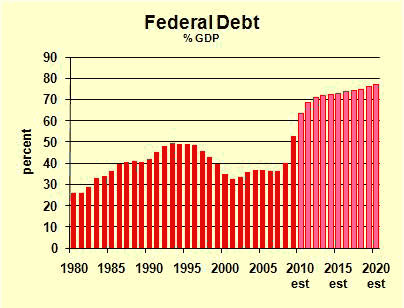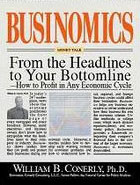A loyal reader asks if cutting government spending could possibly help create jobs. He’s skeptical. The short answer is austerity does not help the economy in the usual Keynesian models–but there’s reason to doubt them.
Here’s a short lesson in the history of economic thought. John Maynard Keynes developed a theory that found government spending could significantly boost or contract the economy. That became part of the established body of economic thought.
Early critis of Keynes argued that he had not fully considered “crowding out” whereby government borrowing pushes up interest rates, crowding out private sector (and especially corporate) borrowing, leading to reduced investment in capital equipment. Actually, Keynes had addressed the issue and decided that when sales are very low, companies are hesitant to expand capacity at any interest rate.
Other challenges to Keynes came from the monetarist school, led by Milton Friedman, which didn’t attack the theory so much as say that money had a much larger impact on the economy than did government policy. This view became the established theory in the 1980s and 1990s (and I’m simplifying tremendously).
A frontal assault on government spending as a stimulus came from a great modern economist, Robert Barro (who has been named as a possible Nobel laureate). Barro argues that taxpayers anticipate future tax bills. When they see large deficits, they assume they’ll eventually have to pay the bill. They cut spending now to build up reserves to cover their future tax liability. This idea was first posited by the great 19th century economist David Ricardo.
Immediately after Barro published the theory, which we call Ricardian Equivalence, I laughed. “Yeah, people are that rational that they figure out their future taxes years in advance. Ha ha ha.”
I’m not laughing to hard now. Here’s what I’m saying in my speeches: The deficit is huge. It may improve a little with economic growth, but then the boomers start retiring, collecting Social Security. And they get Medicare. Then new hips, knees, hearts, etc. Over time, deficits continue to expand. (The social security component at least levels out as a share of GDP, but Medicare continues to worsen as health care inflation and utilization rates continue to push costs beyond revenues.)

I do not expect the Federal Reserve to allow enough inflation that the debt is effectively repudiated. And I do not expect the government to officially repudiate the debt, as some Latin American countries have done. Instead, I expect that taxes will rise. There may also be some entitlement reform, but most of the deficit cutting will come from higher taxes.
In my speeches on the economic outlook, I predict higher taxes in the coming decade, and I advise audiences to save more. Their nest eggs will produce fewer after-tax spendable dollars when tax rates rise, so larger nest eggs are needed.
I am advising people to follow that theory I laughed at: spend less now because taxes are going up.
The calculation of future tax burdens is not at all formal or precise. It’s a gut feeling. And I think it is truly at work, especially among middle and upper income families. I hear it a lot from people I speak to.
That’s how cutting government spending can help jobs. People would like to feel confident that the government is operating prudently, responsibly. I doubt that anyone, left or right, would use those words right now.
- Bulenox: Get 45% to 91% OFF ... Use Discount Code: UNO
- Risk Our Money Not Yours | Get 50% to 90% OFF ... Use Discount Code: MMBVBKSM
Disclaimer: This page contains affiliate links. If you choose to make a purchase after clicking a link, we may receive a commission at no additional cost to you. Thank you for your support!




Every single dollar of deficit spending (and especially the countless dollars spent on Federal bureaucrats pushing papers around in thousands of offices with dozens of czars, yet(weren’t the Czars all supposed to have been shot?) is included in “The Gross Domestic Product” and denied to the people who are actually producing things. Instead of, for example, making it easier for productive people to thrive (such as ending the “temporary” WWII withholding of tax from paychecks), the only easing is the bogus “Quantitative Easing” by which trillions are transferred almost interest free to banks with no requirement on their part to ease anyone else’s burden.
Albert Einstein once wrote that there would be no wars if only 1% refused the draft- “the jails would not hold them all.” What if 1% of taxpayers waged their own war on a government that puts the “too big to vfail” first?
Bill Conerly’s “short lesson” is a little too short. (“Here’s a short lesson in the history of economic thought. John Maynard Keynes developed a theory that found government spending could significantly boost or contract the economy. That became part of the established body of economic thought.”) He leaves out the part written, in the wake of Quantitative Easing’s first grand roll out under FDR, by his own Treasury Secretary, Henry Morgenthau (confessed to his diary, but alas not to the public):”We have tried spending money. We are spending more than we have ever spent before and it does not work. And I have just one interest, and if I am wrong … somebody else can have my job. I want to see this country prosperous. I want to see people get a job. I want to see people get enough to eat. We have never made good on our promises. … I say after eight years of this Administration we have just as much unemployment as when we started. … And an enormous debt to boot.”